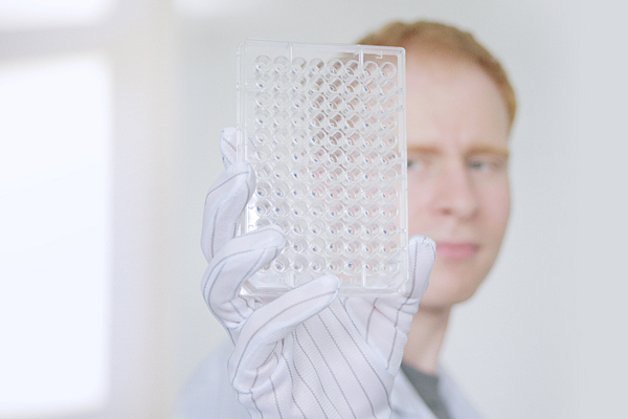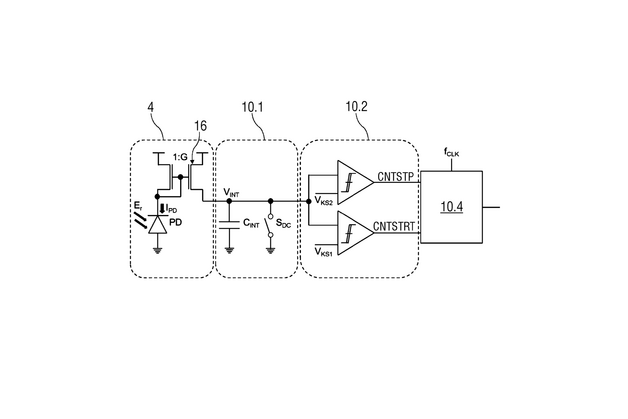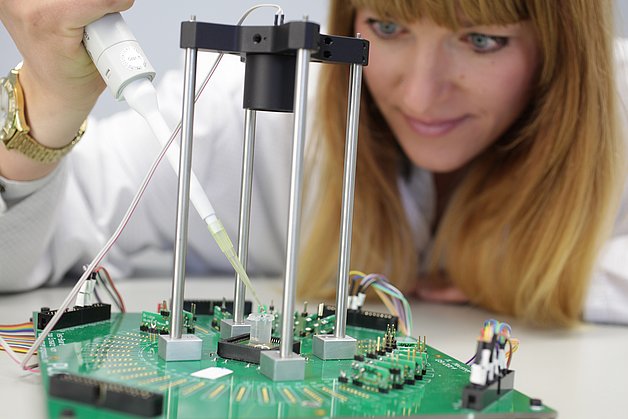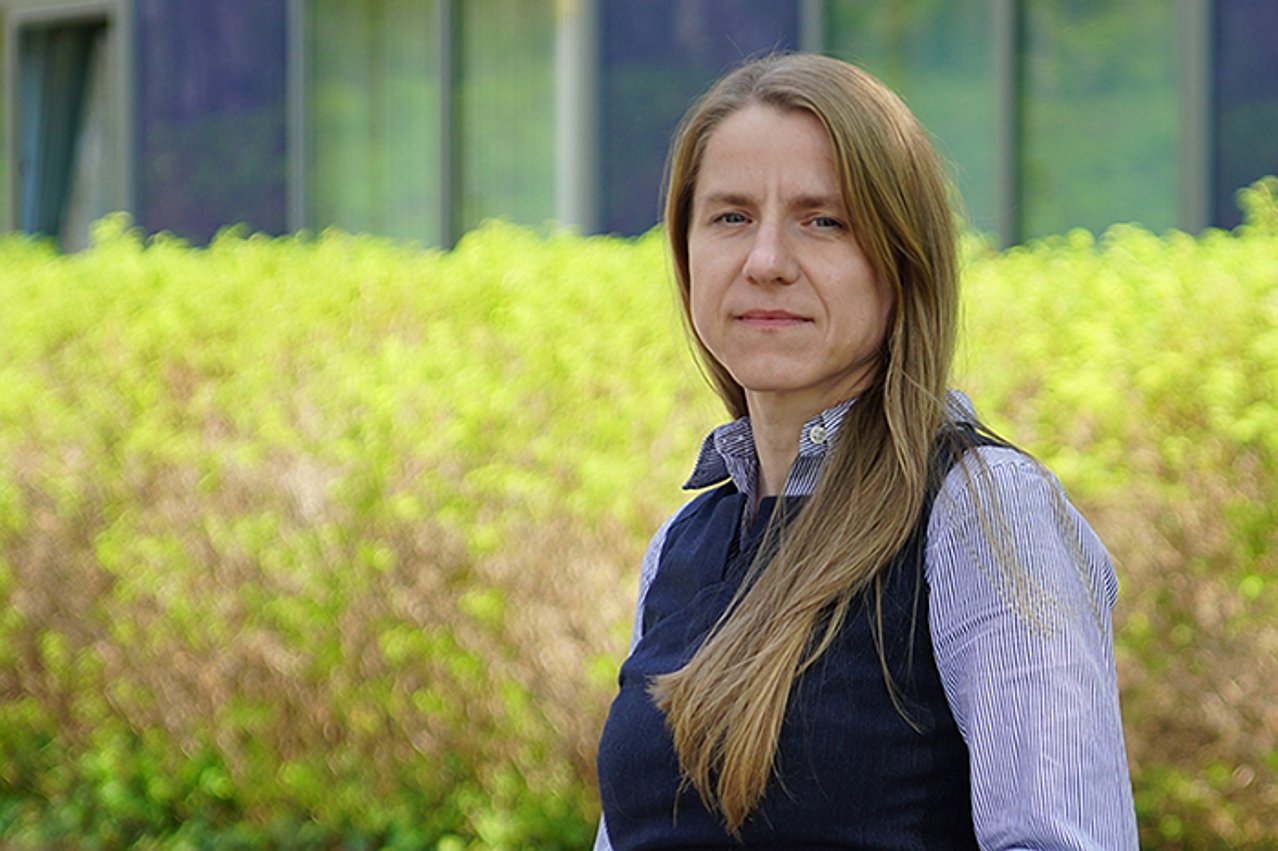MEDICA 2017
Description:
Functional model for quantitative point-of-care cancer diagnosis with the help of microelectronics
There are certain types of cancer for which the patient’s doctor can test rapidly on the spot, obtaining an immediate result and thus resulting in saving cost and time-consuming lab tests. Present rapid tests are no more than qualitative and produce results confined to ”yes“ or ”no“. For colon and prostate cancer to be diagnosed at a very early stage, IMMS is developing microelectronics coming into direct contact with a sample and being capable of recognising concentrations of antigens in the range of one nanogram per cubic centimetre. Via live-demo of the functional model, IMMS will present the detection principle the current work is based on.
A passive RFID sensor prototype for the analysis of aqueous solutions
IMMS will demonstrate a passive RFID microelectronic chip with remote power supply. Placed into aqueous solutions, the chip measures temperature data which is captured and processed by an RFID reader unit. With this energy-efficient chip developed by IMMS, values are being measured and digitised with a power consumption of very few microwatts (approximately 3.5 microwatt). This would facilitate the use of a sensor operable without interruption for at least a 10-year period from a mignon battery with a typical capacity of 1000 mAh. Thanks to this ultra-low power consumption a battery is dispensable: an RFID reader unit generates an electromagnetic field which is sufficient to supply the passive RFID chip with power and to record and send data through containers and liquids over distance of up to four centimetres. The batteryless principle for RFID sensors which is introduced at the MEDICA is currently being transferred by IMMS to other measurands.
IRIS®II – epi-retinal system of Pixium Vision to compensate for blindness
IMMS has developed a biocompatible microelectronic chip as part of a retinal implant system with which people who have lost their sight from retinitis pigmentosa but with an intact optic nerve are learning to partially see again. A camera integrated into the spectacles records images of the environment which are transferred through the pupil to the retinal implant. There, the IMMS chip converts the optical information into an electronic data stream which is passed to the retina stimulator for the excitation of the optic nerve cells to elicit visual perception in the brain. The patients of the IRIS®II European clinical trial are currently learning to interpret the new perception in their re-education program. At the MEDICA, IMMS will present the system with which those patients are being equipped and video examples from on the study with patients' experiences.
Related content

Project
INSPECT
We have developed a CMOS biochip with which the prostate-specific antigen can be quantitatively detected. The chip achieves the specifications…

Project
ADMONT
IMMS has validated novel semiconductor process technology with passive RFID sensors and an in-vitro breast cancer diagnostic system.

Project
IR_RX
IMMS’ biocompatible microelectronic chip is part of a retinal implant system with which blind patients are learning to see again.

Patent
DE 10 2018 218 122
Device and method for analysing biological, chemical and biochemical substances

Press release,
Forschung und Entwicklung des IMMS für die Bioanalytik auf der MEDICA 2019
IMMS bietet Partnern für ihre Life-Science-Anwendungen F&E zu elektronischen Komponenten und Systemen

Press release,
Batteryless RFID sensor chip sends measured data out of aqueous solutions
IMMS demonstrates prototype at MEDICA, Nov 13th – 16th, Hall 3/G60

Press release,
IRIS®II – Bionic vision system to compensate for blindness – microelectronics for a retinal implant
IMMS presents Pixium Vision‘s epi-retinal system at MEDICA, Nov 13th – 16th, Hall 3/G60

Press release,
Mobile rapid tests for prostate and colon cancer – microelectronics measures antigen concentration
IMMS demonstrates functional model at MEDICA trade fair, Nov 13th – 16th, hall 3/G60
Contact
Contact
Dipl.-Hdl. Dipl.-Des. Beate Hövelmans
Head of Corporate Communications
beate.hoevelmans(at)imms.de+49 (0) 3677 874 93 13
Beate Hövelmans is responsible for the text and image editorial work on this website, for the social media presence of IMMS on LinkedIn and YouTube, the annual reports, for press and media relations with regional and specialist media and other communication formats. She provides texts, photographs and video material for your reporting on IMMS, arranges contacts for interviews and is the contact person for events.


